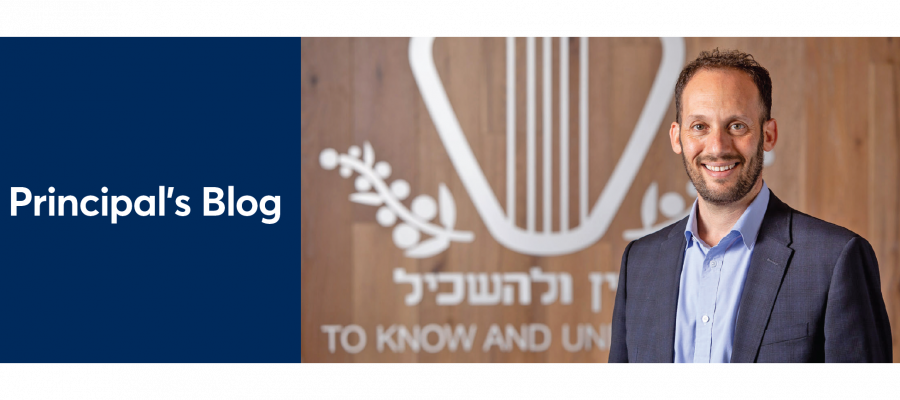
Working together to curb smartphone use
“Gen Z became the first generation in history to go through puberty with a portal in their pockets that called them away from the people nearby and into an alternative universe that was exciting, addictive, unstable, and… unsuitable for children and adolescents.”
This quote from renowned thought leader Jonathan Haidt’s The Anxious Generation summarises why Haidt believes that early and unfettered access to social media has caused a huge spike in anxiety, depression and other mental illness in young people.
Parents of The King David School agree. In our recent survey, 90% of parent respondents worried about how much time their children spent on their devices. 70% worried about what they were accessing and more than 50% believed that their children were spending more than 3 hours per day, outside of school time, engaged with their device. Another disturbing response was that 70% of parent respondents suggested that conflicts around device usage were occurring regularly within their families.
This week The King David School launched our new program, Ctrl Alt Del, which is designed to assist our families in taking steps to protect their kids’ childhoods, to improve their mental health outcomes and to enhance their family units.
The power of the program is that it harnesses the strengths of the King David community to create an inclusive and collective model of action to address this vital social issue. The program involves parents in a particular year level signing a pledge to withhold providing their child with a smartphone until at least Year 7. We will offer parent education to facilitate the drafting of Family Charters which determine the rules around usage. We offer tips and training on using technology to limit and monitor children’s screen time. We also provide discounts to family-oriented activities that take their children away from their screens.
The program was launched at a booked-out parent evening where we were privileged to hear from an exceptional panel which included the program author, Vice Principal Student Wellbeing and Head of the Junior School, David Opat; Coordinator of Student Wellbeing for Magid Campus, Chanie Stock; KDS parent, comedian and media personality, Charlie Pickering; and KDS parent, author, mindfulness expert and psychiatrist Dr Elise Bailylew.
Chanie Stock facilitated a stimulating conversation which explored the gravity of social media impacts and why it was so vital to take action. David Opat lamented the negative impact that social media and device addiction has had on student creativity, play and downtime. He also explained the increased levels of inattentiveness that was negatively impacting student learning.
Elise Bailylew noted that the issue was far more significant than students being a little bit addicted to their devices. Rather the patterns of usage are creating physiological changes in adolescent brains that are similar to what is seen in the brains of someone who is suffering from drug or gambling addiction. Elise explained that the devices are designed around a model of dopamine hits. She clarified that dopamine is a hormone that provides a sense of pleasure but not satisfaction. The increase in dopamine through repeated exposure to social media triggers a physiological response where the body, which is seeking equilibrium, decreases the occurrence of dopamine over time which leads to dysphoria and other negative feelings.
Charlie Pickering shared some deeply personal anecdotes about struggling from bullying as an adolescent and how he was protected by knowing that his home was a haven. This is something that is denied to our children whose experience of cyberbullying can be anywhere at any time. Charlie also explained that the financial model of social media companies is predicated on extensive access and we can not look to these companies to improve the outcomes for our young people. Charlie offered a harrowing insight into the fact that the Coroner’s Court is investigating what to do about child suicide as a consequence of increasing rates of mental illness. He challenged us to collectively take steps to avoid this becoming a frequent occurrence.
Ctrl Alt Del is not about us telling parents what to do or how to parent. Rather, it is focused on the School bringing families together in an opt-in manner to work collaboratively to address this issue. We believe that in doing so we empower parents to take agency and improve their family life in a way that is far less isolating and challenging than doing it alone.
We live in an ever-changing world and our students need to learn how to use technology effectively in their lives. However, the provision of unmonitored and unfettered early access to devices that are designed to enhance addiction is undoubtedly harmful. We simply must do what we can to achieve a greater balance that protects childhood and families.
Shabbat Shalom,
Marc Light
